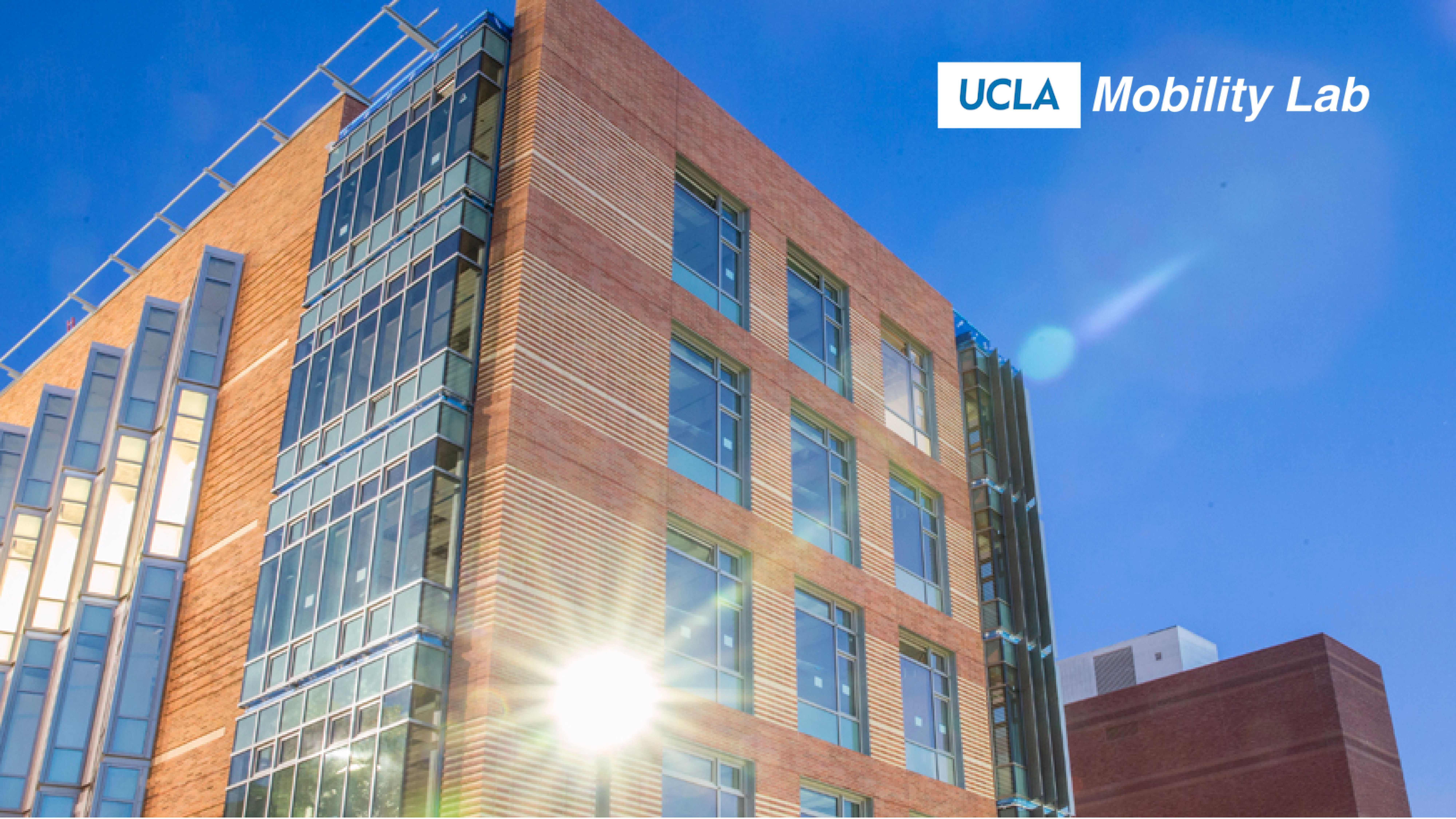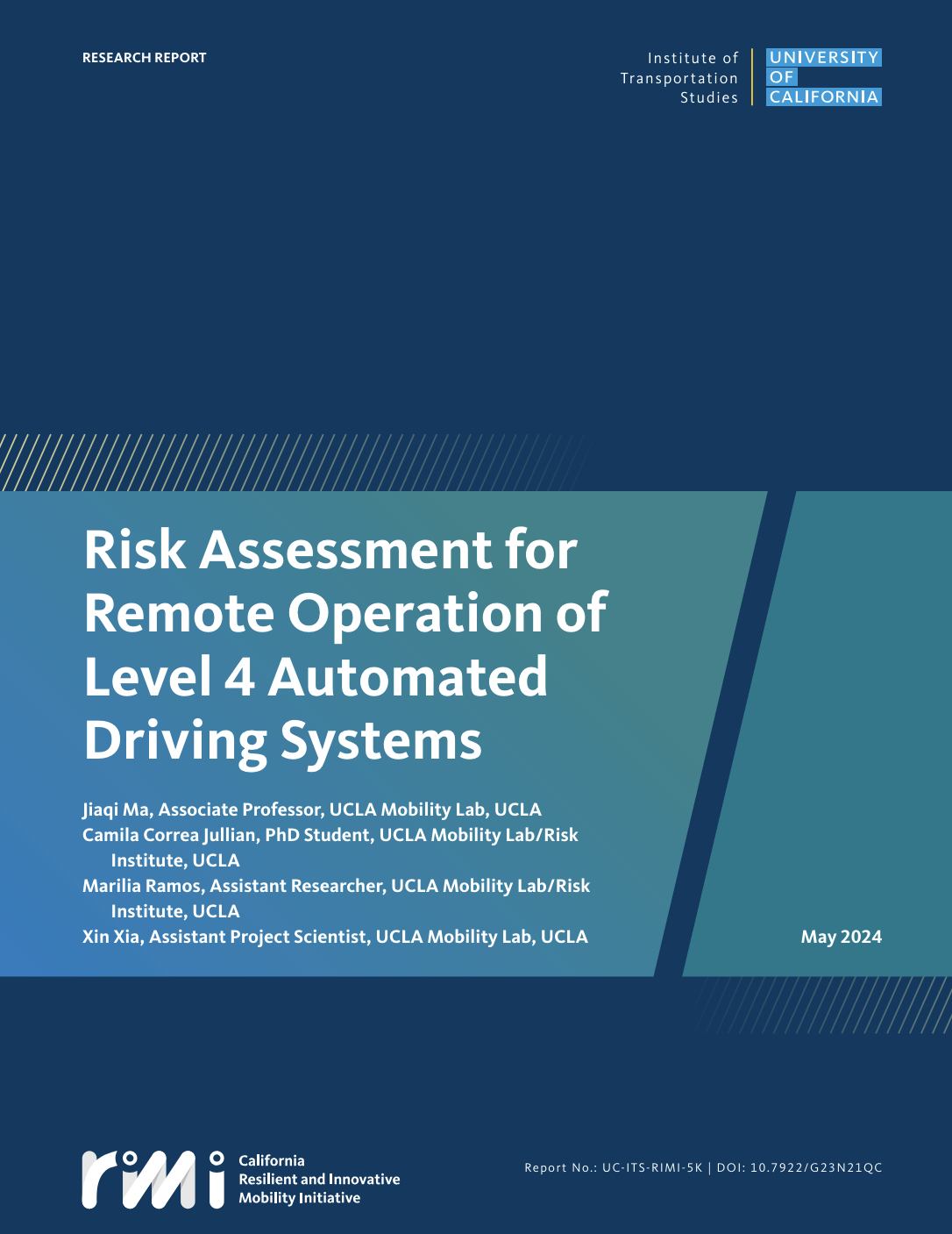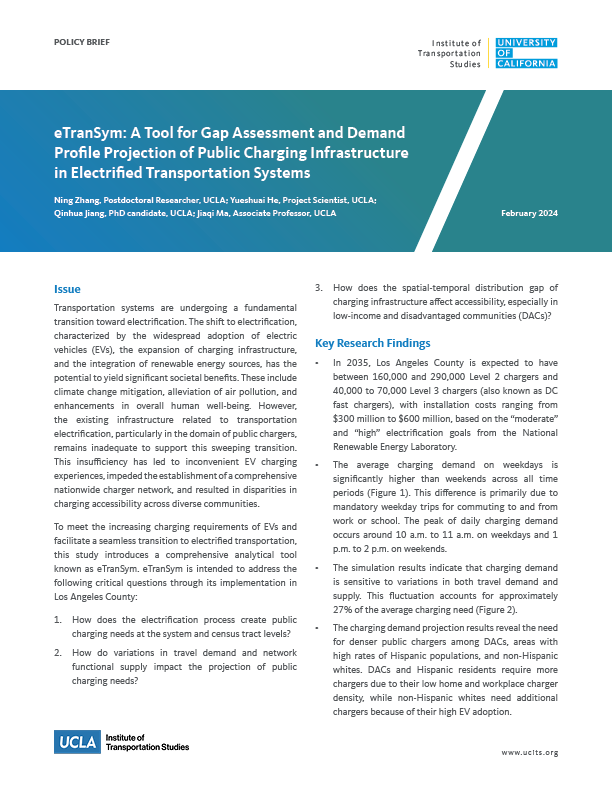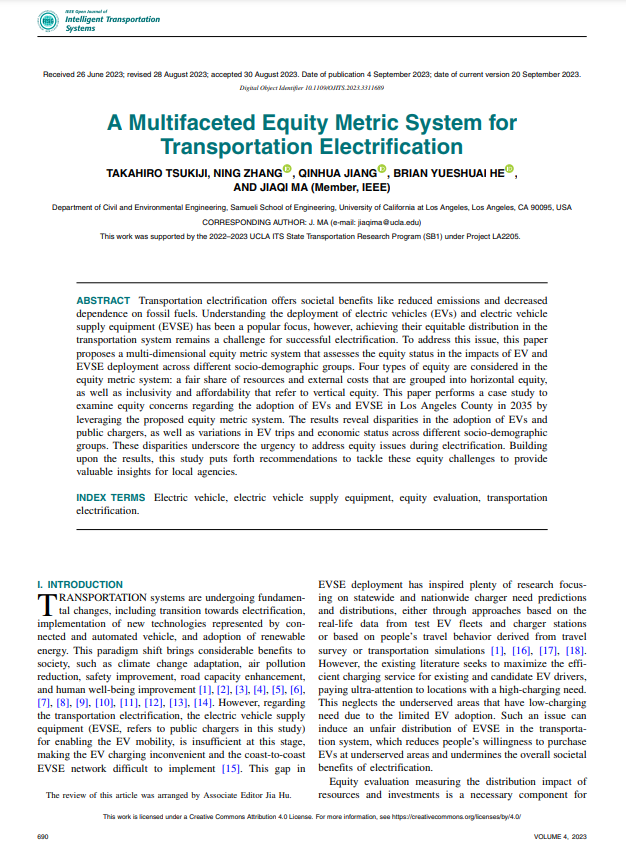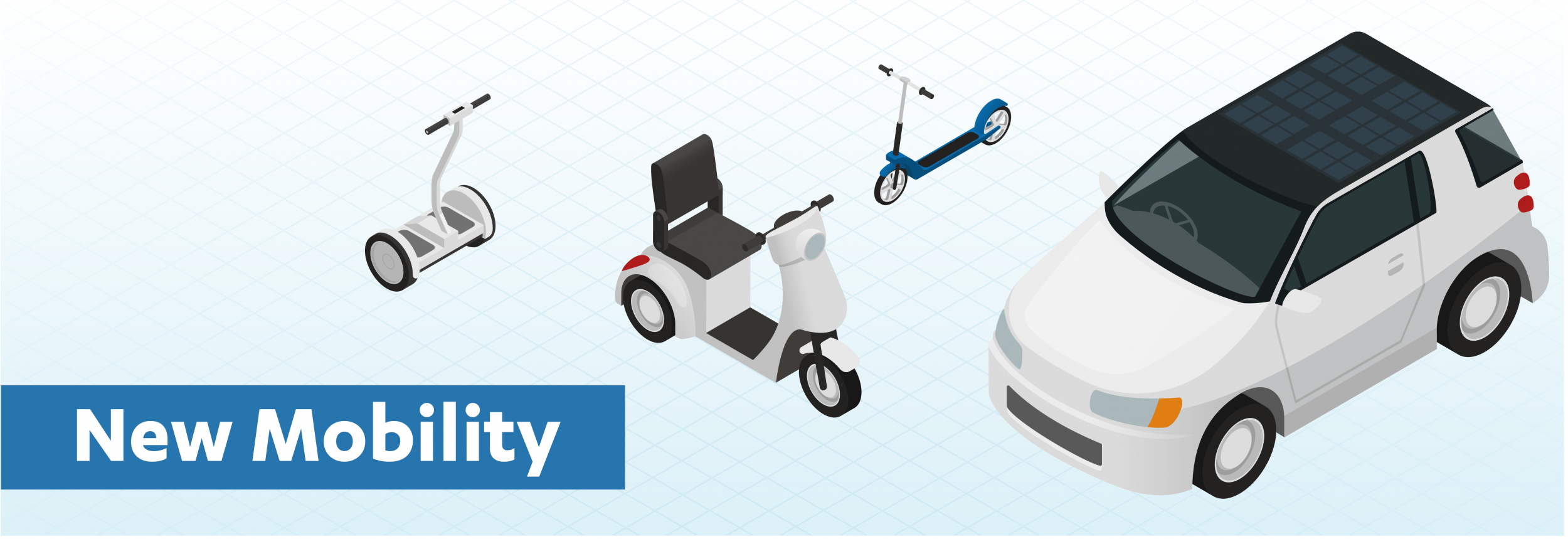
The New Mobility program considers the intersection of travel behavior, economics, engineering, regulation, and infrastructure as technology and business forces lead to new mobility options. These options include ride-hailing, automated and connected vehicles, and micromobility. New mobility can strain existing infrastructure and regulations, and researching empirical questions can inform a response.

LEAD SCHOLAR
Jiaqi Ma
Associate Professor at the UCLA Samueli School of Engineering
Spotlight

Center of Excellence on New Mobility and Automated Vehicles
The Mobility Center of Excellence directed by Jiaqi Ma will assess the anticipated long-term impacts of increased new mobility technologies and services on land use, real estate and urban design.
UCLA Mobility Lab
A research lab dedicated to harnessing system theories and tools, such as AI, robotics, and machine learning, to innovate and develop advanced mobility technologies and solutions for smart cities, particularly intelligent vehicular and transportation systems
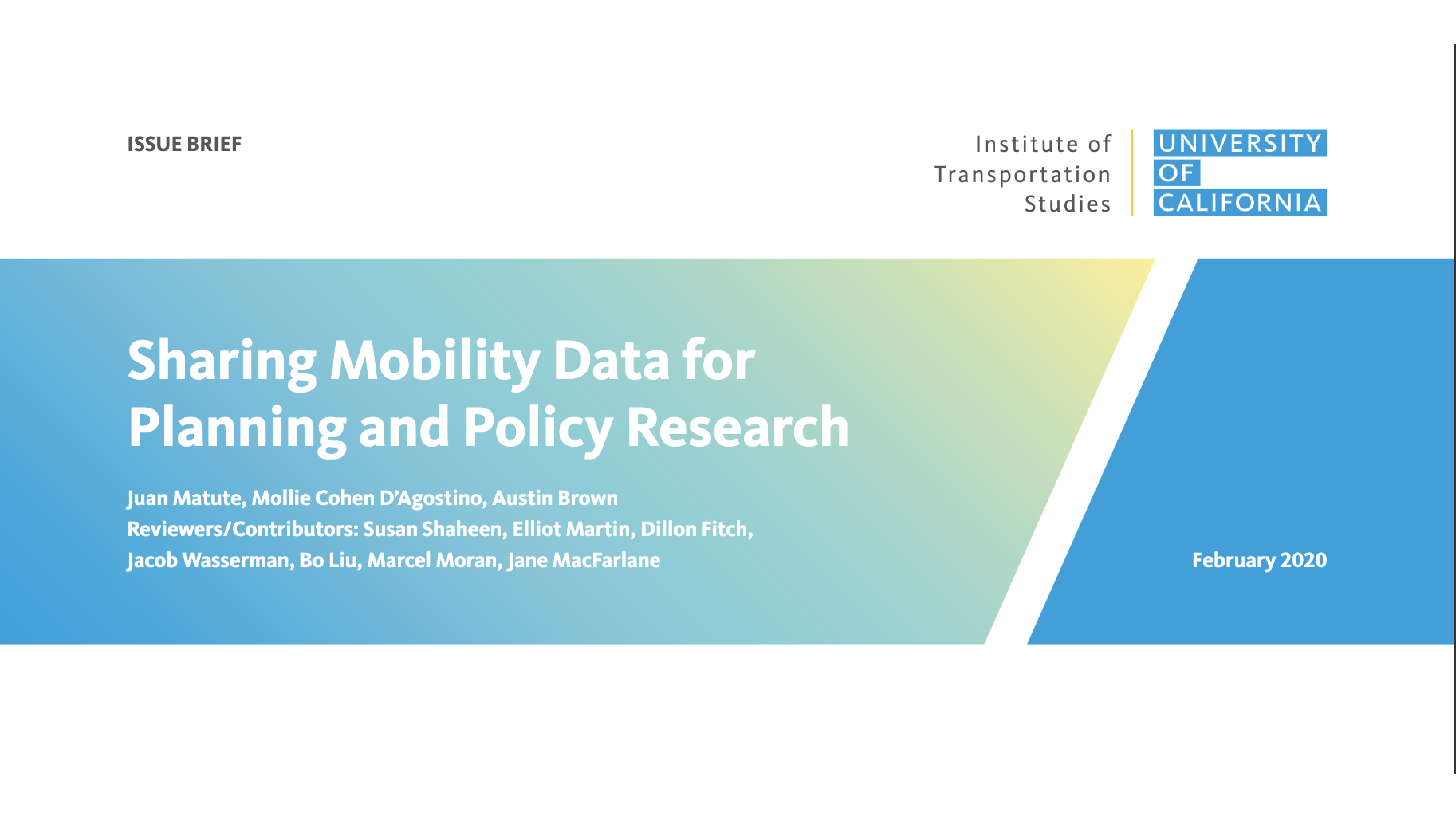
Sharing Mobility Data for Planning and Policy Research
A UC ITS brief to inform regulatory and legislative decision-making around shared mobility providers.
In the News
ITS Publications
Journal Articles
Highway Capacity Manual (HCM) Capacity Adjustment Factor (CAF) Development for Connected and Automated Traffic at Signalized Intersections
Adekunle Adebisi, Yi Guo, Bastian Schroeder, Jiaqi Ma, Burak Cesme, Apoorba Bibeka, Abby Morgan
Transportation Research Board, 2021
Why can’t abuela take Lyft to her doctor? A mixed methods study of older adult mobility in inner-city Los Angeles
Madeline Brozen, Anastasia Loukaitou-Sideris, Lia W Marshall, Miriam Pinski, Martin Wachs
Transportation Research Board, 2019
Faculty Projects
Student Projects
Client: Coco Delivery
Client: WSP Global
Scholars

Tierra Bills

Xiang Chen

Peter Chu

J.R. DeShazo

Rajit Gadh

Lei He

Yueshuai “Brian” He

Achuta Kadambi

Bo Liu

Jiaqi Ma

Asad Madni

Michael Manville

Juan Matute

Ankur Mehta

Adam Millard-Ball

Aydogan Ozcan

Mason Porter

Deepak Rajagopal

Izhak Rubin

Joshua Schank

Ryan Snyder

Paulo Tabuada

Brian Taylor

John Villasenor

Chee Wei Wong

Lin Yang

Zhiyuan Yao

Ning Zhang
Study transportation at the #1 public university
Transportation-related degrees at UCLA


